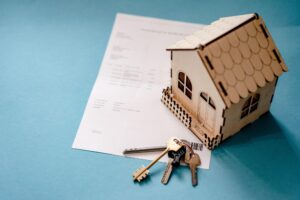There has been a lot of speculation about the housing market since the pandemic started, and no one is certain what will end up happening in the near or long-term future. Will house prices drop, or will they continue steadily climbing as they have been in many locations?
When it comes to determining the value of a home, there are a lot of factors that influence house prices. Larger market trends and economic realities in addition to the particulars of a property come together to create the price that both the buyer and the seller can agree upon.
Understanding what makes house prices go up or down can help you understand the state of the current housing market. Afterall, predicting the direction of the market can have a big impact on whether you decide to buy, sell, or stay put.
Let’s take a look at everything you need to know about the factors that impact house prices.
Interest Rates and House Prices
One of the reasons that home prices have been on the rise is because of historically low interest-rates. Because people are able to lock in low interest rates for their mortgages, it means that they are willing to pay proportionately more for the sale price of the home.
As a basic rule of thumb, property values tend to rise the cheaper the interest rates are in the more credit that is available to borrowers.
Unemployment
If unemployment is on the rise, it means that there are less people who can afford a house. Even if unemployment is on the rise, even the fear of rises in the future can impact the housing market.
Economic Growth
When the economy is growing in income arising, people are able to purchase houses for more money. This increases demand as well as prices.
On the flipside, people are not able to afford to pay as much money for a house when incomes are falling and it may become more common for homes to be foreclosed. This means that there will be more supply than demand, which decreases home prices.
Consumer Confidence
People are only willing to take the risk of taking out a mortgage if they have a general confidence in the economy and housing market. If people think that the prices of houses could fall, they will be less likely to enter the market.
Supply and Demand
Supply and demand, in terms of real estate, refers to the relationship between how many homes are available for sale and how many people are looking to buy houses.
When supply is high but demand is low, it means that there are more houses on the market than there are people that want to buy them. This decreases home prices. On the other hand, high demand and low supply will increase home prices, as buyers become more competitive for the few houses that are on the market.
Mortgage Availability
Mortgage lenders are not as keen on lending money as they were before the 2008 housing crisis. This means that mortgage lenders have stricter criteria and require a bigger down payment in order to purchase a house, which leads to less demand.
Location
One of the most obvious factors that impacts the value of a property is it’s location. For instance, when you are thinking about selling your house, you likely look up “house prices near me” rather than “the state of the nation’s economy and housing market.”
What this means is that you might see house prices dropping in some locations while on the rise elsewhere. Some cities or neighborhoods might be on the up and up when it comes to home prices, while others might be on the decline.
Some of the factors that can impact how appealing a location is to people are:
- Availability of open spaces, parks, and walking trails
- Housing density of the neighborhood
- Walkable neighborhoods, cafes, restaurants, and cultural attractions
- Proximity to shops, restaurants, public transportation, and schools
Other factors that impact the desirability of a location include the crime rates, unemployment rates, and reputation of schools.
Size and Facilities
Another important factor that determines how much a property is worth is the overall size of the property in addition to its features. You will likely be able to sell a four-bedroom home for more than you can sell a two-bedroom house for. Features like swimming pools, extra bathrooms, office space, garages, and outdoor entertaining areas can also influence the average house price.
In places that are densely populated, whether or not a home has designated space to park can also be an important factor.
If a house is in need of major repairs or upgrades, this will also impact the price of a home. If you’re house isn’t in ideal condition for sale on the market, consider selling it for cash. You can learn more about our process here.
Aesthetics
First impressions are crucial in real estate, which means that curb appeal can have an impact on home prices. The value of a home can be seriously influenced by the way a house looks from the outside.
Renovation Potential
Both investors and homebuyers want to know whether or not there is potential for growth in a property. The potential to renovate the home to increase it’s property value is something else that will factor into the value of a home.
Investment Potential
Investors will paricularly look at how much rental income they can expect from a property or how much money they could sell it for after repairing it and reselling it. Additionally, buy and hold investors are looking at how the values of properties in a location are likely going to change over time.
Energy Efficiency
Houses that are energy efficient tend to have higher values. This is because energy efficiency means that the cost of utilities will be lower, which adds up to a lot of money over time. People are willing to spend more if they know it will save them money in the long run.
Are You Ready to Sell Your House in Memphis?
Even in a hot seller’s market, selling your home can be stressful, time-consuming, and expensive. Plus, if your home is in rough condition or in an unappealing location, you still might find that it will simply sit on the market for months if not years.
Selling your house for cash is a way to make the whole process simple and painless. You can schedule the closing to fit your schedule and the process is way more in your control than if you sell to a buyer with financing. If you’re interested in selling your house in a quick, easy, and headache-free way, contact us today for a cash offer!







